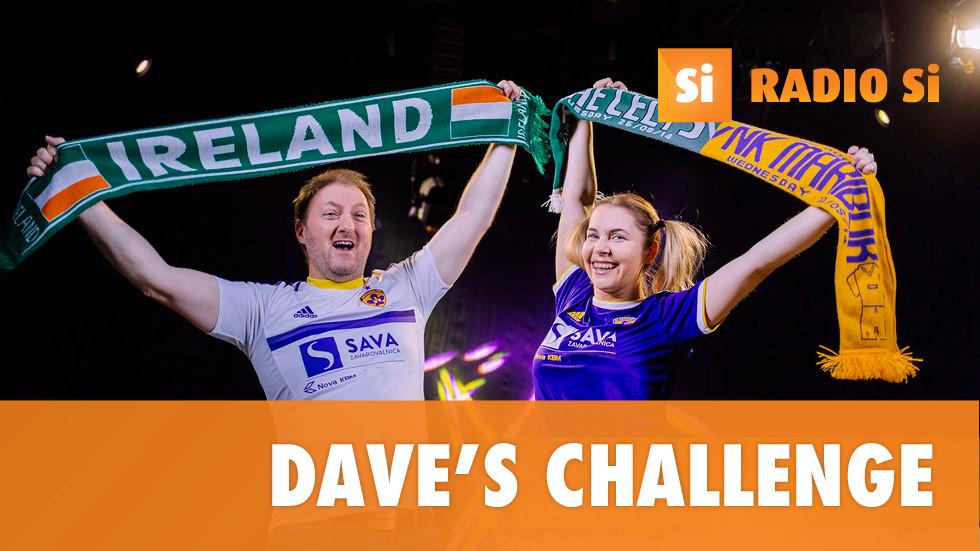
A young Slovene girl called Fani spent a year in the Emerald Isle working as an au-pair. After falling in love with good-humoured Irish bartender Dave, Fani lures him back to Maribor.? But how can he possibly survive without knowing any Slovene?! Trying to master »survival
Slovene« turns out to be an incredible challenge for the highly motivated Dave, and occasionally a real nightmare for his beloved Fani.?
A Daily dose of Slovene language for foreigners wanting to improve their everyday Slovene, and have a laugh while doing it.
Premieres every weekday at 7:30am, rebroadcasts at 3:30pm … only on Radio Si.
Mlada slovenka Fani je leto dni preživela na zelenem Irskem kot varuška otrok. Tam se zaljubi v hudomušnega barmana Davea in ga zvabi, da se z njo vrne/preseli v Maribor. ? A le kako zdaj v Sloveniji preživeti brez znanja slovenščine!?
Spoznavanje »preživetvene slovenščine« je za izjemno motiviranega Irca neverjeten izziv, za njegovo Fani pa občasno prava nočna mora?
Dnevna doza slovenskega jezika za vse tujce, ki bi se želeli vsak dan naučiti nekaj novih slovenskih besed za vsakdanjik in se ob tem še nasmejati.
Vsak delavnik premiera ob 7:30, ponovitev ob 15:30 … samo na Radiu Si.
DAVE's CHALLENGE and the challenges of learning Slovene
Slovene is complicated, as Dave learns in Dave's Challenge. Learning new letters like č and š and ž and words without vowels like ČMRLJ (bumblebee) are only the beginning! In English, once you learn the word for »bumblebee« you can sit back and relax. Well, maybe you have to learn to stick an »s« at the end to make it plural. But in Slovene you haven't even started. Want to make it plural? First you have to determine what kind of plural. That's because Slovene has plural and a very special case known as »dvojina« or »dual case«. So, for example, 2 bumblebees would be »čmrlja« and a big bunch of them would be »čmrlji«. But of course you're still not done learning the world for bumblebee because Slovene also uses noun declension. Are you next to a bee? Do you have a bee? Do you not have a bee? Is there something on the bee? These are all vitally important questions. If you're outside with two bees then you're »z dvema črmljema« but if you're outside with three bees then you're »s tremi čmrlji«. Did we mention that Slovene has 6 noun declensions that are different depending on gender and number?
Luckily, Dave has decided not to despair but to BEE optmisitic and press on with the help of his Slovenian wife Fani! We wish him – and you – the best of luck in taking on this challenge!






































































